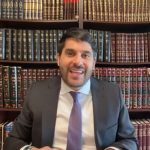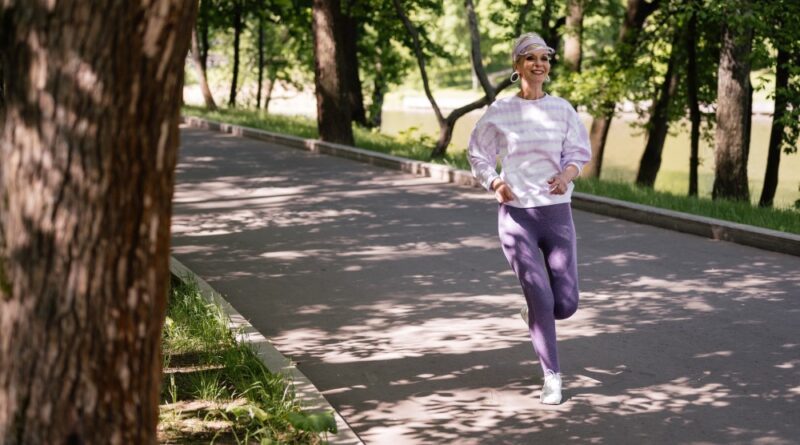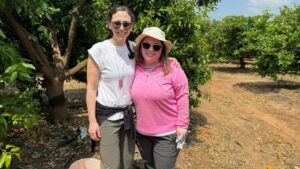As we gear up for the High Holidays and focus on areas of growth for the new year, it’s a great time to revisit Judaism’s view on exercise and physical health.
I’d like to highlight four approaches within our tradition that speak positively about physical health — each from a different perspective. Together, these approaches remind us that for us to achieve complete teshuva (repentance), we must take our whole being into account, body and soul.
The first approach is straightforward: it’s difficult to grow spiritually when our body is ailing. This can be compared to the upkeep of a car. You can have the best driver behind the wheel, but if your car is out of gas or has a flat tire, you will not arrive at your destination. Writes Maimonides: “Since maintaining a healthy and sound body is among the ways of God — for one cannot understand or have any knowledge of the Creator if one is ill — therefore, one must avoid that which harms the body and accustom oneself to that which is healthful and helps the body become stronger” (Mishneh Torah, De’ot 4). There is a Hebrew saying that neatly sums up this approach: “Nefesh briyah beguf bari — a healthy soul in a healthy body.”
A second perspective shifts our attention to the symbiotic body-soul relationship. The body is a vehicle for the soul to achieve its goals; however, the relationship is more entangled than that. The body is intrinsically bound up with the soul. So much so that when the soul grows and expands, its effects are felt in and on the body.
This is indicated in the Torah’s description (Shemot 34) of Moshe’s glowing face at Mount Sinai, a bodily manifestation of his elevated spiritual state. The same goes for the body’s impact on the soul. Bodily movement, a healthy blood flow, can awaken our soul and enhance our spirituality.
The medieval work on the 613 mitzvot, Sefer Hachinuch, touches on this connection in the author’s discussions on mitzvot involving a physical component. He teaches, “A person’s heart is impacted by their actions.” Physical mitzvot, such as eating matzah or putting on tefillin, require concrete physical acts because these external movements inspire an inner movement of the heart. For our purposes, we can say that since the body and soul are intrinsically connected, strengthening our body and improving its health can increase our energy and impact our spiritual state for good.
A third approach focuses on the importance of taking care of the body — for the sake of the body. God gave us our body, so we should do our utmost to take care of it.
I have a friend who once bought their parents expensive patio furniture as an anniversary present. Unfortunately, their parents neglected the furniture. When my friend checked on the furniture years later, they found it in horrible shape.
Similarly, our body is a wonderful gift. We must be careful not to neglect it. We should tend to the body by working out, eating properly and maintaining proper hygiene. This is why the great Hillel used to tell his students he was doing a mitzvah by going to the bathhouse to clean his body (Vayikra Rabbah 34:3). Taking care of what was given to us by God is a meritorious deed.
A final approach, offered by Rabbi Abraham Isaac Kook (1865-1935), also speaks of taking care of the body for the body’s sake. But Rabbi Kook takes it to another level in saying exercising and maintaining our physical health enable us to take part in something much larger than ourselves.
According to Rabbi Kook, the world is constantly progressing and returning to God. Any form of positive growth and improvement allows us to take an active part in this process of cosmic return. Based on this understanding, Rabbi Kook expands the concept of teshuva way beyond returning from sin. Am Yisrael returning to the Land of Israel, for instance, is seen as teshuva. Returning to our true selves is teshuva. And taking care of our bodies even has its own title — teshuva gufanit — bodily return (Orot Hateshuvah 1). Rabbi Kook’s approach sees caring for our body as a divine act in the sense that it helps us take part in the cosmic return to God.
Many of us struggle when it comes to nutrition and exercise. But from a Torah perspective, it’s well worth the effort. Putting in this work will not only make us healthier and happier people, it creates avenues to draw us closer to God and live a more robust spiritual life.

Rabbi Dr. Eli Yoggev serves Pikesville’s Beth Tfiloh Congregation.





